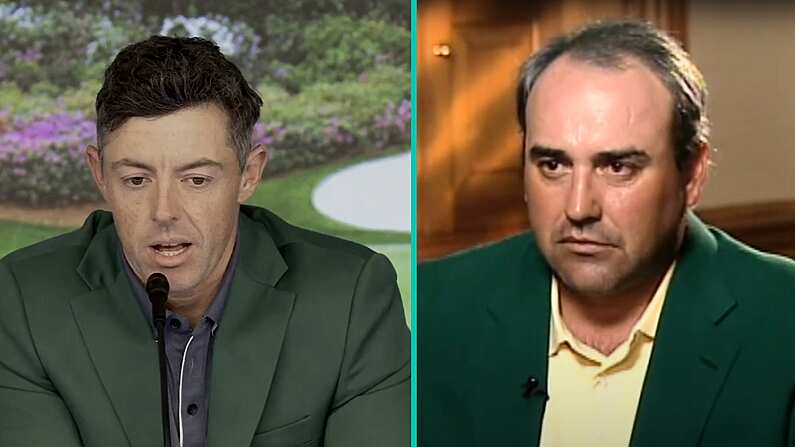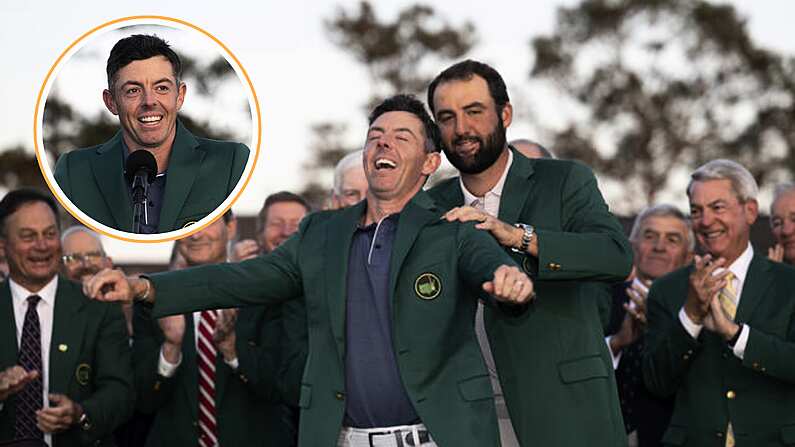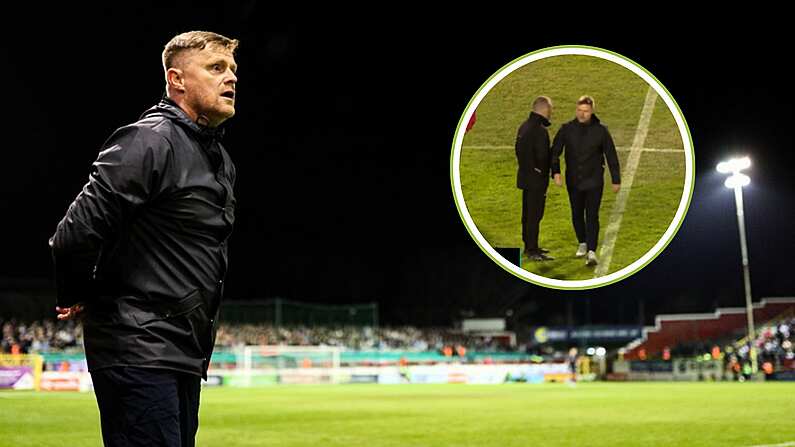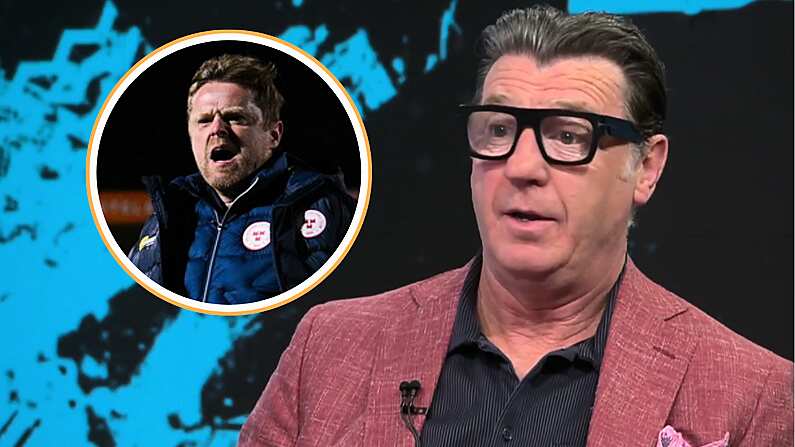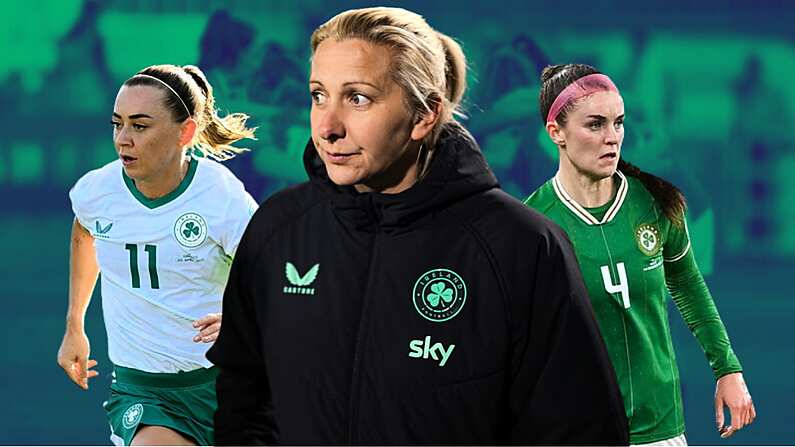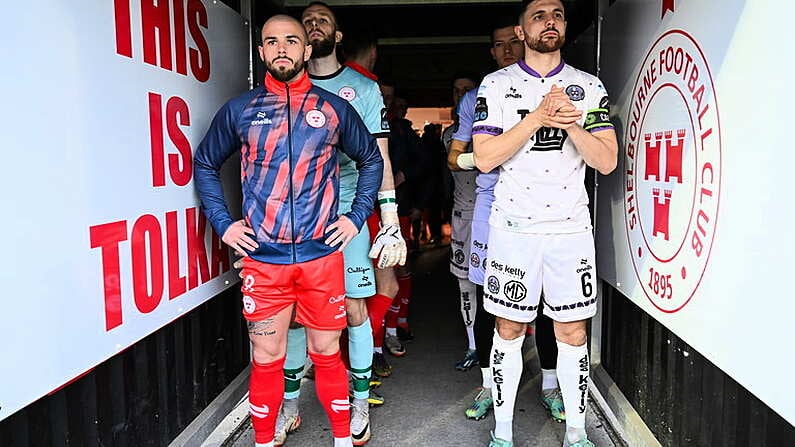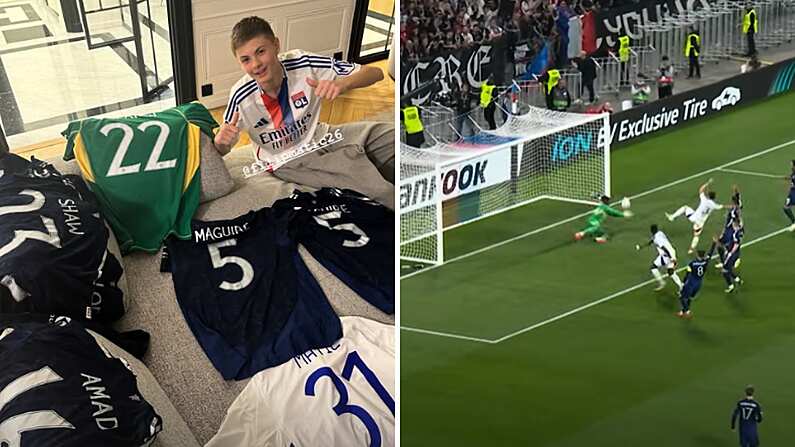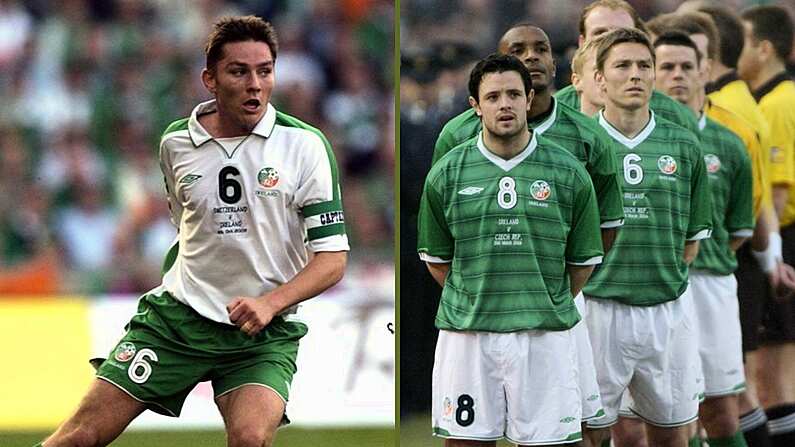Jose Mourinho's ambition to manage Manchester United has been nakedly displayed for some time. Back as far as 2013, when Mourinho's Real Madrid eliminated Manchester United from the Champions League - Ferguson's final European game - Mourinho mistook the post-game interview for a job interview for a job interview, in agreeing that Nani was undeservedly sent off and that the "best team lost".
He ultimately missed out on his dream gig to David Moyes, with Spanish journalist Diego Torres reporting that Mourinho wept upon learning he hadn't got the gig. In a bid to make sure he didn't miss out a second time, he went all Stan to Eminem in penning a six-page 'love letter' to United to prove he was a suitable candidate for the job.
The letter set out to explain "his strong desire to manage the club and how he would be willing to adhere to United’s principles, and also outlined his plans for the team and the key decisions he would take". The reason he wrote the letter in the first place was, according to Miguel Delaney, to assuage the fears of the United hierarchy relating to "Mourinho’s regular controversies, his style of football and his failure to nurture young talent".
Talks began both parties the following month, and Mourinho will finally ascend to the position he craves this week. Highly-regarded journalist Andy Mitten was on Off the Ball last night talking about how Mourinho will need to change aspects of his management style to suit United. But why? Without wishing to indulge in mawkish love songs, but surely Mourinho is perfect just the way he is?
***
The sentiment that Manchester United is an institution ill-befitting Mourinho's antics would seem to disregard the acts of the man who helped build that reputation: Alex Ferguson, as author and columnist Declan Lynch put it on Off The Ball last year, was one of the most poorly behaved men of the twentieth century. Ferguson was undoubtedly capable of acts of great warmth and kindness, but this existed alongside a singular determination to win that circumnavigated decent human respect. Ferguson was capable of the same, unseemly public spats as Mourinho: he called Rafa Benitez a "bitter control freak". He could be ruthless to his own, also. This is how The Guardian's Daniel Taylor recalls Ferguson's demeanor the day Roy Keane was sacked by the club:
Keane and Fergie. Both fascinating, aren’t they? I was at that press conference on the morning Keane was sacked and Fergie didn’t seem to have a care in the world. We hadn’t seen him for two weeks. “And thank Christ for that,” he joked. “I needed a break from you. Did you know Bayern Munich have a press conference every bloody day? Can you imagine that?”
Honestly, he was in a great mood that day, talking about Scotland winning “the unofficial World Cup” and England’s chance of hosting the 2018 World Cup (“Dearie me, I’ll be 76 by then – if I’m still alive.”) He shooed us out at 12.25pm and we went to get a bacon cob from the burger van round the corner. Proper naïve little lambs.
And then our phones started ringing. Keane’s been sacked? A couple of hours he’d been sitting in his car, crying, on that same country lane. And there was Fergie in the best mood we had seen him for some time. He really was one ruthless fucker – and a brilliant actor when he needed to be.
Ferguson had noticed a decline in Keane, and this was his ruthless and slightly spiteful response. Mourinho's ruthlessness will be good for United: that singular determination to win was absent in Van Gaal and most noticeably David Moyes. To Manchester United fans, the club exists to win trophies and give them cause to sing. Ferguson's life ambition was to win, as is Mourinho's.
***
To the board of directors, Manchester United exists for another reason: to make money. Far from any theatrics hurting the image of the club, it makes it more appealing. Ken Early of The Irish Times has written exactly on this topic here. Mourinho is arguably the football manager most amenable to the creation of content, and that's partly how United make their cash. (As an intersting aside, United may have one slight issue in monetising Brand Mou: Chelsea already have him trademarked).
Interesting #sportslaw q. - how will CFC owning the Mourinho trademarks affect MUFC's attempts to commercialise him? pic.twitter.com/FTu83ET2Q7
— Dave Phillips (@lovefutebol) May 24, 2016
The club rightly abandoned a notion of exceptionalism at board room level in the 1990s, expanding Old Trafford and, as early as 2000, replaced the squad list at the back of the match program with a list of sponsors.
Says it all that Ed Woodward statement purporting to praise Louis Van Gaal after shabby day at Manchester United is headed "NYSE: MANU."
— David Conn (@david_conn) May 23, 2016
In stark contrast, Liverpool bumbled through the 1990s clinging to a mawkish sense of nostalgia entitlement, an erroneous belief in 'The Liverpool Way' that had served the club from Shankly to Dalglish. The Liverpool Way was to be just as brutal and ruthless as United became under Ferguson. Consider this anecdote on how they renewed player's contracts from Men in White Suits by Simon Hughes:
Secretary Peter Robinson would offer a player a wage, often at a fee representing a pay cut. He would then leave the room, and the manger – be it Shankly, Paisley, Fagan or Dalglish – would enter, informing the payer he would help raise his wage with Robinson. The process would get the player on the managers side, and the club would end up paying what they expected to pay anyway.
This was 'The Liverpool Way', not the club who became too sensitive to sack Roy Evans before appointing Gerard Houllier. United's values, in contrast, in their glory era under Ferguson was to cut adrift dead wood with a reproach as swift as it was cruel. The Liverpool Way in the 1960s, 70s and 80s was to win at all costs. The United Way under Ferguson was to win at all costs. It would be entirely incongruous should this not be the state of things under Mourinho.
***
Eric Cantona today voiced concern over Mourinho's style of play, but the fact that Mourinho's Chelsea at times played thrilling football is often overlooked. In his 04/05 side - arguably the best in Premier League history - they attacked with two rapacious wingers in Damien Duff and Arjen Robben, just as Ferguson's United had done before them. Even in his second spell at Chelsea, his team played some superb free-flowing football in the early part of the season - a 6-3 win at Everton and a 5-0 victory away to Swansea comes to mind - before closing ranks to succeed in the prime objective in winning the league.
Mourinho has the contacts and the reputation to sign superstars for United, which will bring with it a level of attacking football Louis Van Gaal deliberately avoided. Mourinho will play on the counter-attack, meaning, in many ways, control will be sought without the ball. This is the polar opposite of Van Gaal's philosophy, whose idea of control was of passing sideways until all but the insomniacs objected.
Mourinho may have to promote youth, but if this was the prime concern to all at United, Van Gaal would still be in a job for it was the one thing he did well.
Van Gaal is gone because he failed to entertain and, above all, he did not appear to place winning above all else. That's what Ferguson did. That's what Mourinho will do.





